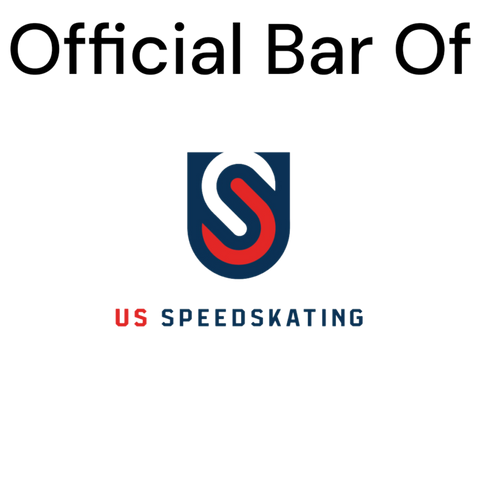An on-the-go snack, the perfect fitness fuel, and a super source of energy - Protein bars are great to keep on hand for a snack between meals, to meet your protein goals, and to help you power through your workout. However, choosing the right protein bar for you can be a daunting process. With so many options out there, it's hard to know if you're choosing the best source of nutrition and protein to meet your needs, or if you're simply drawn to attracting packaging and marketing.
To aid you in your search, we have compiled a list of what to avoid and what to look for when choosing a protein bar. Please keep in mind that every person's diet and fitness goals are different and most ingredients are okay in moderation.

What to Avoid
1. Artificial Sugar and Sweeteners
Protein bars can be a nutritious and delicious addition to your diet. However, the amount of sugar found in many protein bars can meet, and even exceed, that of some candy bars, resulting in it being more of a sweet treat than a dietary supplement. When choosing a protein bar, keep in mind of how much and what kind of sugar it contains. Avoid proteins bars where the nutrition labels include artificial sugar and sweeteners like sucrose, or high fructose corn syrup. Sugar alcohols, like xylitol, sorbitol, erythritol, and maltitol, are also often found in protein bars due to the fact that they are a low-calorie way to sweeten protein bars. However, it is best to avoid these ingredients if you are prone to digestive and stomach upsets.
2. Soy
Though widely used in vegan and vegetarian diets and frequently found in protein bars, many people choose to avoid soy due to the fact that it is one of the top dietary allergen. Though soy has many health benefits, some people experience problems such as acne, asthma, and eczema after consuming soy. And if it isn’t organic, there is a high chance of it containing GMOs (genetically modified organisms).
3. Casein and Whey (if you're vegan or lactose intolerant)
Casein and whey are high-quality proteins found in cow's milk and are popular among protein bars on the market as they contain amino acids that help with recovery and reduce muscle breakdown. Though similar, casein and whey differ in their amino acid makeup. Because of this, whey can be better suited for your workout as it’s quickly absorbed and stimulates muscle protein synthesis. However, if you're allergic to dairy products, or have an intolerance to them, you may want to avoid these two ingredients when choosing a protein bar.
4. Preservatives
To ensure that a protein bar lasts longer on the shelf and taste better without drastically impacting the nutrition labels, various preservatives and chemical compounds may be added to them. For example, these artificial ingredients may allow a bar to stay soft for longer or lower the amount of sugar. When searching for a healthy protein bar, avoid the ones with an over-processed ingredients list. If you have no idea what the ingredients are, how to pronounce them, or where they come from, best to steer clear of that protein bar.

What to Look For
1. Protein
Of course, you can't have a protein bar with protein! Essential for those who live active lifestyles, protein helps enhance muscle repair and growth. When choosing a protein bar for you, you first need to gauge which protein works for your body and diet as well as how much protein you should consume per day. Prioritize protein bars that source their protein from high-quality isolates and concentrates. Whey protein is a great option because it is high grade, easy to absorb, and helps to improvement lean mass and strength. If you're vegan or cannot tolerate dairy products, pea protein is a great plant-based option. The amount of protein a person should consume varies based on their level of activity and goals. For example, most Americans need 0.8 grams per kilogram of their body weight but an athlete with vigorous exercise may require 1.2 grams. Discover which protein and amount is right for you to narrow down your protein bar options.
2. Natural Sugars
High amounts of artificial sugar can often be found in protein bars to combat the taste of protein and provide delicious flavors. When choosing a protein bar, make sure to scan the ingredients list instead of just relying on the nutrition labels. Preservatives are sometimes included to decrease the amount of sugar in a bar, so there are times when the nutrition labels can be misleading. Instead, look for natural sugars like honey, cane sugar, or fruit in your protein bar. These ingredients are naturally sweet and a healthier alternative to artificial sugar. Though these bars may be slightly higher in sugar as they are coming from a more natural source, they are a better option than hard-to pronounce, added sugar ingredients.
3. Healthy Fats
Fats are essential for your body to absorb certain nutrients and they also help to keep you satiated. When looking for a protein bar to keep you fuller and for longer, search the ingredients list for nuts and seeds which provide healthy fats. Most of the fat in nuts is monounsaturated fat, as well as omega-6 and omega-3 polyunsaturated fat. They're also good sources of fiber and protein. In addition to their health benefits, nuts and seeds are delicious, crunchy, and filling additions to any diet. A list of common nuts and seeds using in protein bars includes: almonds, sunflower seeds, pistachios, walnuts, chia seeds, cashews, pecans, macadamia nuts, pumpkin seeds, hazelnuts, and peanuts (if you're not allergic).
4. Minimal, Whole Food Ingredients
Whether they're used to flavor or sweeten, the best protein bars only use whole food or natural ingredients—no artificial ingredients allowed. A short and readable ingredient list is essential when choosing a healthy protein bar. Look for ingredients that you can recognize and understand and contains less or no preservatives, binders, and fillers. For extra measures, most protein bar companies list the processes their bars go through so you can be confident that they meet your requirements.
Though there may be lots of protein bar options lining the shelves of your grocery store and choosing the one for you can be overwhelming, you can do it with a little patience (and checking lots of labels). Follow this list of ingredients to avoid and ingredients to look for to help guide you to the perfect protein bar that fits both your dietary and fitness needs!
Resources:
- https://www.henryford.com/blog/2018/09/how-to-choose-a-truly-healthy-protein-bar
- https://www.vitacost.com/blog/cooking-recipe/food-and-drink/6-ingredients-to-avoid-in-protein-bars.html
- https://www.eatthis.com/best-protein-bars/
- https://www.everydayhealth.com/diet-and-nutrition-pictures/smart-protein-bar-picks.aspx
- https://www.healthline.com/nutrition/casein-vs-whey#origin
Author: Katie Nguyen, Rise Bar Team




